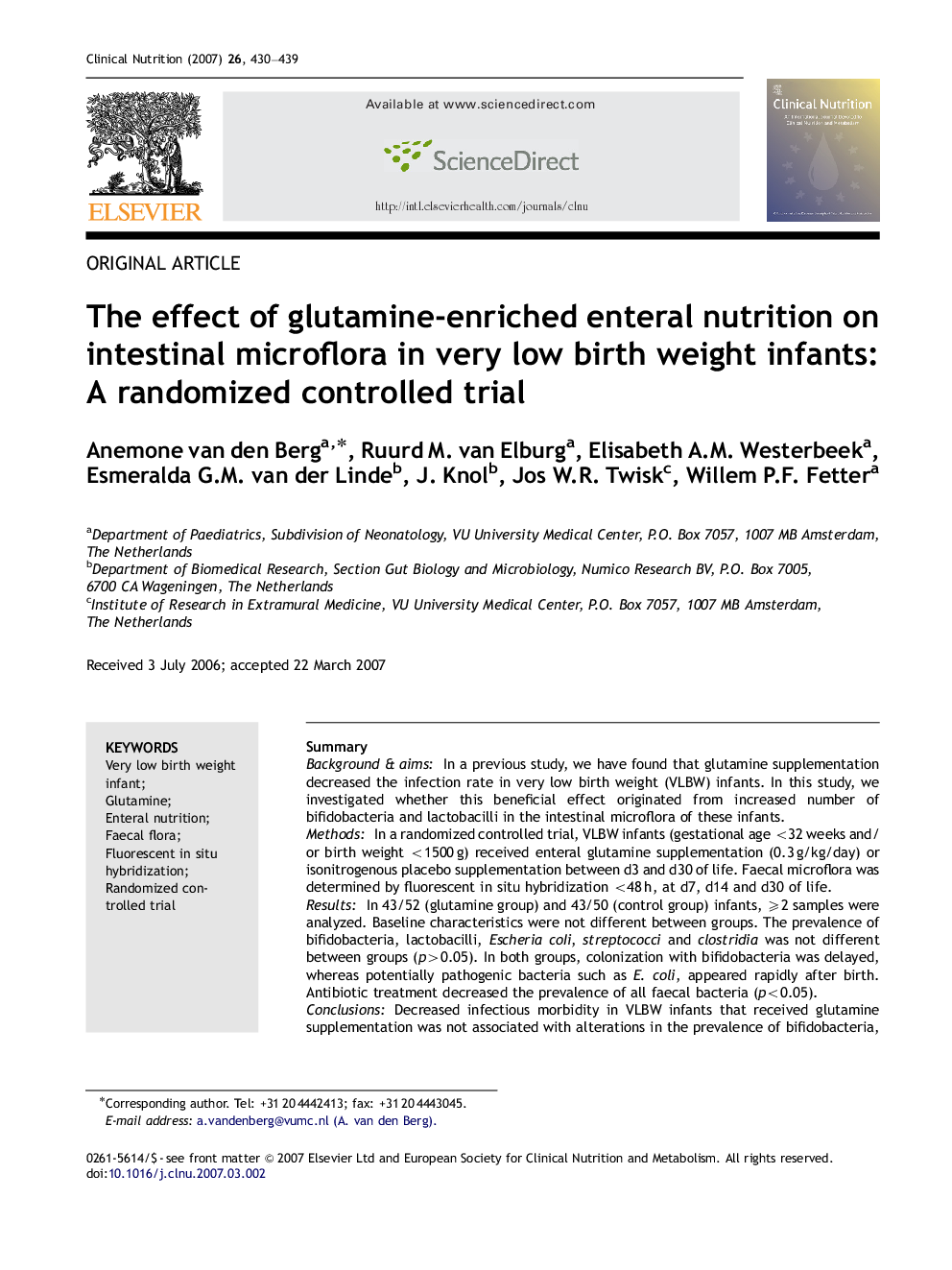| Article ID | Journal | Published Year | Pages | File Type |
|---|---|---|---|---|
| 2683368 | Clinical Nutrition | 2007 | 10 Pages |
SummaryBackground & aimsIn a previous study, we have found that glutamine supplementation decreased the infection rate in very low birth weight (VLBW) infants. In this study, we investigated whether this beneficial effect originated from increased number of bifidobacteria and lactobacilli in the intestinal microflora of these infants.MethodsIn a randomized controlled trial, VLBW infants (gestational age <32 weeks and/or birth weight <1500 g) received enteral glutamine supplementation (0.3 g/kg/day) or isonitrogenous placebo supplementation between d3 and d30 of life. Faecal microflora was determined by fluorescent in situ hybridization <48 h, at d7, d14 and d30 of life.ResultsIn 43/52 (glutamine group) and 43/50 (control group) infants, ⩾2 samples were analyzed. Baseline characteristics were not different between groups. The prevalence of bifidobacteria, lactobacilli, Escheria coIi, streptococci and clostridia was not different between groups (p>0.05). In both groups, colonization with bifidobacteria was delayed, whereas potentially pathogenic bacteria such as E. coli, appeared rapidly after birth. Antibiotic treatment decreased the prevalence of all faecal bacteria (p<0.05).ConclusionsDecreased infectious morbidity in VLBW infants that received glutamine supplementation was not associated with alterations in the prevalence of bifidobacteria, lactobacilli, E. coIi, streptococci and clostridia. In general, colonization with health-promoting bacteria was delayed, whereas potentially pathogenic bacteria appeared rapidly after birth. Antibiotic treatment delayed the bacterial colonization.
